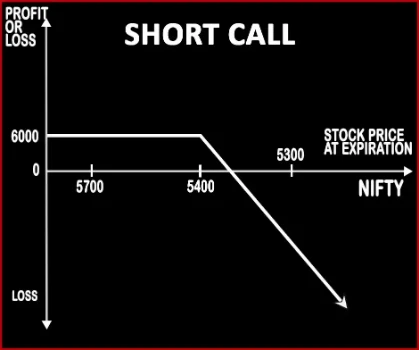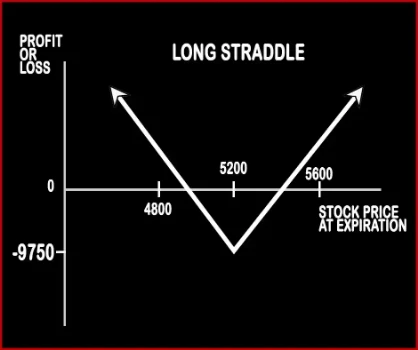Compare Strategies
| SHORT CALL | LONG STRADDLE | |
|---|---|---|

|

|
|
| About Strategy |
Short Call Option StrategyA trader shorts or writes a Call Option when he feels that underlying stock price is likely to go down. Selling Call Option is a strategy preferred for experienced traders. However this strategy is very risky in nature. If the stock rallies on the upside, your risk becomes potentially unquantifiable and unlimited. If the strategy |
Long Straddle Option StrategyStraddle is neither bullish nor bearish strategy; it is a market neutral strategy. Here a trader wishes to take advantage of the volatility in the market. This strategy involves buying of one Call option and one Put option of the same strike price, same expiry date and of the same underlying asset. Now a trader is bound to make profits once stock moves in either direc .. |
SHORT CALL Vs LONG STRADDLE - Details
| SHORT CALL | LONG STRADDLE | |
|---|---|---|
| Market View | Bearish | Neutral |
| Type (CE/PE) | CE (Call Option) | CE (Call Option) + PE (Put Option) |
| Number Of Positions | 1 | 2 |
| Strategy Level | Advance | Beginners |
| Reward Profile | Limited | Unlimited |
| Risk Profile | Unlimited | Limited |
| Breakeven Point | Strike Price of Short Call + Premium Received | Lower Breakeven = Strike Price of Put - Net Premium, Upper breakeven = Strike Price of Call + Net Premium |
SHORT CALL Vs LONG STRADDLE - When & How to use ?
| SHORT CALL | LONG STRADDLE | |
|---|---|---|
| Market View | Bearish | Neutral |
| When to use? | It is an aggressive strategy and involves huge risks. It should be used only in case where trader is certain about the bearish market view on the underlying. | This options strategy is work well when and investor market view is bearish. The strategy minimizes your risk in the event of prime movements going against your expectations. |
| Action | Sell or Write Call Option | Buy Call Option, Buy Put Option |
| Breakeven Point | Strike Price of Short Call + Premium Received | Lower Breakeven = Strike Price of Put - Net Premium, Upper breakeven = Strike Price of Call + Net Premium |
SHORT CALL Vs LONG STRADDLE - Risk & Reward
| SHORT CALL | LONG STRADDLE | |
|---|---|---|
| Maximum Profit Scenario | Max Profit = Premium Received | Max profit is achieved when at one option is exercised. |
| Maximum Loss Scenario | Loss Occurs When Price of Underlying > Strike Price of Short Call + Premium Received | Maximum Loss = Net Premium Paid |
| Risk | Unlimited | Limited |
| Reward | Limited | Unlimited |
SHORT CALL Vs LONG STRADDLE - Strategy Pros & Cons
| SHORT CALL | LONG STRADDLE | |
|---|---|---|
| Similar Strategies | Covered Put, Covered Calls | Bear Put Spread |
| Disadvantage | • Unlimited risk to the upside underlying stocks. • Potential loss more than the premium collected. | • There should be continuous movement of the stock and options price for this strategy to be profitable. • Time decay hurts long option if the strike price, expiration date or underlying stock are badly chosen. |
| Advantages | • With the help of this strategy, traders can book profit from falling prices in the underlying asset. • Less investment, more profit. • Traders can book profit when underlying stock price fall, move sideways or rise by a small amount. | • Unlimited potential beyond the breakeven point in either direction . • Book your profit from highly volatile stocks without determining the direction. • Limited risk, more profit. |